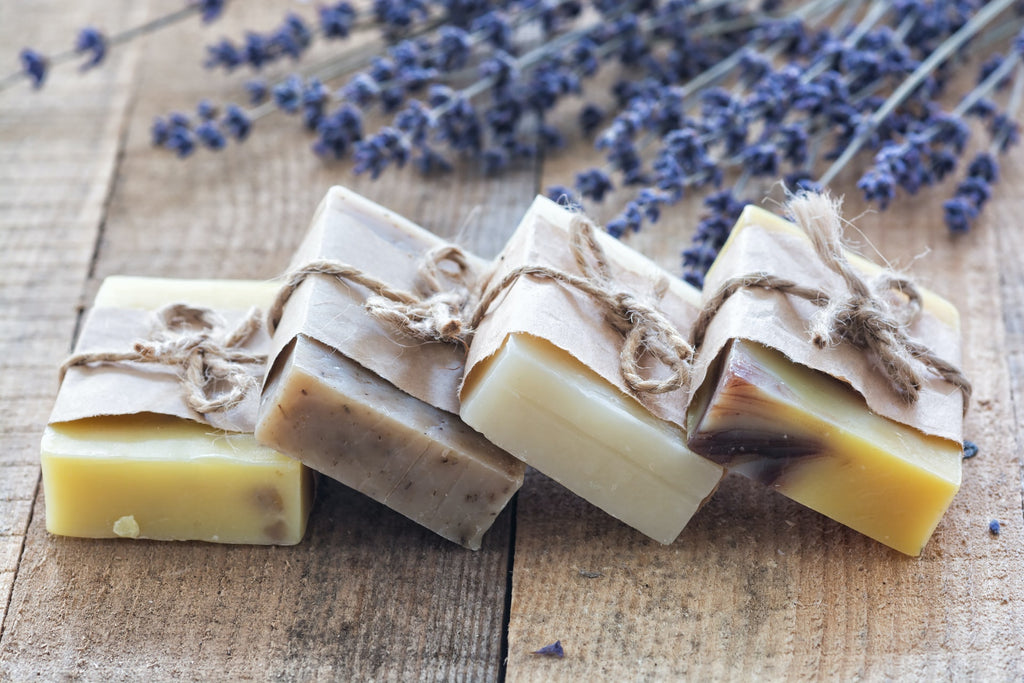Zero Waste Bathroom Tips: 12 Easy Changes You Can Make

When trying to live a more sustainable life, your bathroom is one of the first places to look at. Typically, our bathrooms produce a substantial amount of waste, but fortunately, that’s not very difficult to change. There are some easy swaps that you can make in what you use in your bathroom to reduce your waste, and that is exactly what we’re here to guide you through. You don’t have to change it all up at once – take it step by step, and we think you will find it very doable, and hopefully even have some fun in the process!
Switch to bamboo toothbrushes
Experts say our toothbrushes wear out in about three to four months of use, which adds up to a colossal 90 billion plastic toothbrushes being thrown out annually. Swapping your plastic toothbrushes for bamboo toothbrushes (check out our very own here!) made from biodegradable, BPA-free materials can do wonders. They are much more durable, and can be composted at your home. Not only are they good for the environment, but their antimicrobial properties will make your smile even brighter!

Update your toothpaste
Our toothpaste usually come in tubes that are very difficult to recycle but the good news is there are more eco-friendly alternatives you can look into, such as toothpaste powder or toothpaste tablets that come in glass jars. You can also look at DIY toothpaste recipes and make it at home. Make sure to speak to your dentist to figure out what are the right choices for you.
Avoid buying soaps with plastic packaging
One of our most commonly used toiletries is the humble soap, most of which are packaged in soft plastic. Look for soaps that come in biodegradable packaging and are ideally organically made, free of microplastic beads and harmful chemicals – they are gentler on your skin, and you'll find a variety of choices at different price ranges.
Switch to menstrual cups, cloth pads or period panties
Sanitary napkins and tampons are convenient products that are necessary for menstruating individuals, but they contain chemicals, bleach and a ton of plastic components that are harmful for the environment and potentially your personal hygiene. Reusable menstrual cups, cloth pads and period panties will last you years, are effective in preventing leakage and far better for the environment. Do your research and reach out to your friends who have made the shift, and if you feel it's the right fit for you, make the switch yourself!

Use a natural loofah or compostable body scrubbers
Plastic scrubbing gloves and loofahs are all over the place, but they have a remarkably small shelf life and end up polluting water bodies. If you need a loofah at all, go for one made of natural ingredients such as luffa gourd or coconut fiber. They're excellent for dead cell removal, exfoliate your skin and keep it soft.
Replace your traditional plastic Q-Tips
Most of the Q-tips or cotton swabs available on the market today have plastic stems that add up to a lot of plastic pollution in the long run, but there are Q-tips coming into the market that have stems made of bamboo or cardboard, that can be composted after use. Using a mild soap and your pinky finger can do the job just as well.
Switch up your toilet paper
The production of toilet paper causes deforestation, excess electricity use, and a ton of toxic bleach, and they tend to come wrapped in plastic. You can switch to brands that wrap their toilet paper in cardboard boxes instead of plastic. Also cropping up in the market is toilet paper made of sustainable materials, such as bamboo or recycled paper. One of the greenest choices is switching to handheld bidets, which use minimal water and produce no waste at all.
Say goodbye to plastic razors
Stainless steel safety razors have been around for ages, but they took a backseat when plastic razors took over the market. Well, they're making a comeback and for good reason! Safety razors will last you a lifetime, and will likely give you a cleaner shave than plastic ones. The steel razor blades are easily recyclable and much more cost effective in the long run.

Purchase your hair care products smartly
There are many alternatives to your plastic bottled shampoo. Shampoo and conditioner bars are zero waste options you can look at – more and more options are cropping up on the market as they gain popularity, so you will likely find a type suited to your hair. You can also switch to ayurvedic shampoos minus the plastic packaging, or try out reetha water.
Ditch your plastic hairbrushes
The next time you feel your hairbrush has outlived its utility, opt for one made of bamboo. They're much kinder on your hair, easy to maintain. They're also biodegradable and you can compost them, but not before they give you years of use!
Buy in bulk if your options are limited
If you can't find a zero waste option, choose the next best thing – buy in larger quantities. Buying a large bottle of shampoo instead of travel size ones or sachets, for example, will reduce the quantity of plastic waste significantly. Not only that, bigger containers are made of better quality plastic that make them much more easily recyclable.
Switch to zero waste cleaning supplies
From plastic toilet brushes to chemical filled cleaners, there is a lot of potential waste generation during the process of cleaning our bathrooms. For your next buy try to replace your plastic toilet brush with a coconut fiber one (or any biodegradable material you can find) and replace your hazardous chemical cleansers with eco-friendly ones, some of which you can make and store on your own! At the very least, try and buy them in bulk or large quantities.TAGS:

